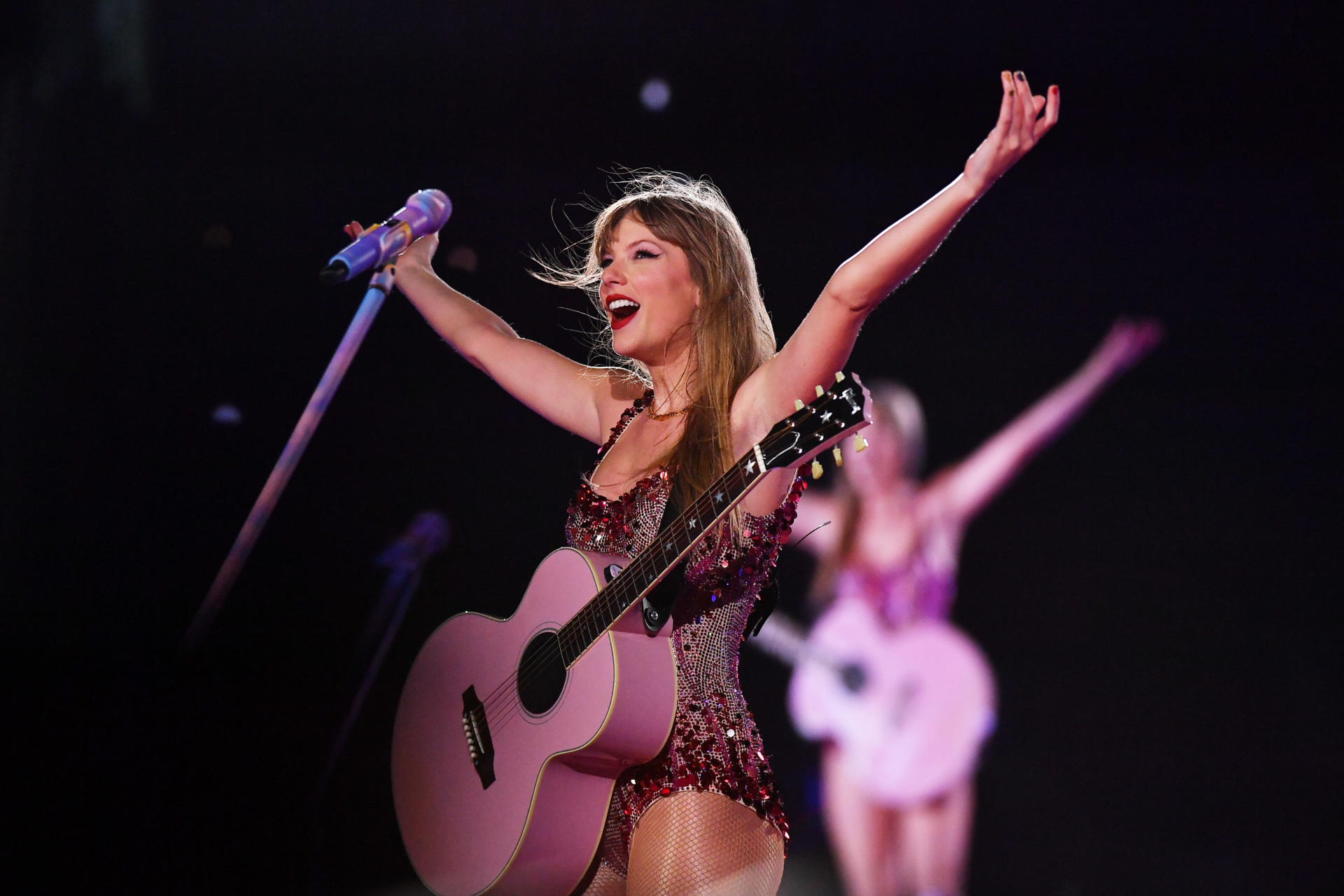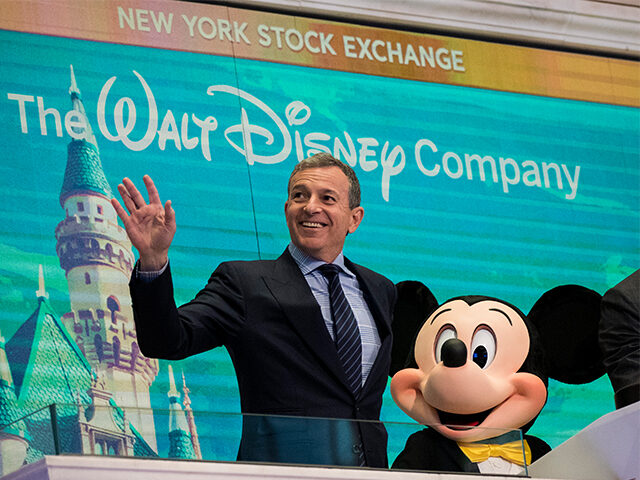I Think I’ve Seen This Film Before…
Even Taylor Swift may not be able to save the economy from a wokecession in entertainment.
Consumer spending has been one of the key pillars supporting economic growth this year, helping the economy avoid a widely forecast recession. Even with surveys showing consumer confidence in the economy scratching along an historically low plateau and public approval of President Biden’s economic management at a never-ending ebb tide, U.S. households kept the economy afloat with their increased spending.

Taylor Swift performs onstage on November 9, 2023, in Buenos Aires. (Marcelo Endelli/TAS23/Getty Images)
There are signs that the increasing wokeness of the entertainment sector may be becoming an economic drag. In nominal terms, consumer expenditures in October grew at their slowest pace since March, rising just 0.22 percent from the prior month. Adjusted for inflation, that works out to just 0.17 percent, the slowest growth since May. Consumer spending still looks not bad, up 2.2 percent in real terms. Before inflation adjustment, however, spending was up 5.3 percent, which is the smallest year-over-year nominal gain since February of 2021.
Spending on recreation services—which includes everything from going to a concert, to gym memberships, to streaming subscriptions—dropped by 0.64 percent in October compared with the previous month, the second consecutive monthly decline. This was the second weakest month of the year, after May. Compared with a year ago, real spending on recreation services is up just 1.8 percent after adjusting for inflation.
…And I Didn’t Like The Ending.
Dissident Hollywood types are starting to talk about a Wokecession for movie-going. The idea is that Hollywood’s insistence on including left-wing political themes in its films has started to weigh on ticket sales.
It might be more precisely called a Disney-Wokecession. While the latest big woke flops from Disney—Marvels and Wish—will not show up until November and December’s figures are released, the American public already seems to be tired of spending money at the box office. Disney flops including The Creator (released September 29) and A Haunting in Venice (released September 15) took their toll.
In inflation and seasonally adjusted terms, consumer expenditures on movie theater tickets fell more than 19 percent in October compared with September. This was the second month in a row of crashing ticket sales. In September, sales fell 18.7 percent. The seasonal adjustment part is important here because this is far more than the normal fall off in sales as the summer blockbusters fade. Last year, for example, sales rose from September to October.
This is even more striking because Taylor Swift’s Eras Tour movie was released in October. If not for the siren queen of America’s teenagers, the plunge would likely have been even more pronounced.
You’re Not My Homeland Anymore…
The downturn is even more troubling for the studios because it challenges the narrative that people were finally coming back to movies. Real spending on movie tickets rose for five quarters in a row through the third quarter that ended with September but it still lags behind pre-pandemic levels. In the third quarter of this year, spending finally rose above the final pre-pandemic fourth quarter of 2019—but only in nominal terms. Adjusted for inflation, spending is down by more than 10 percent. And now it is falling on a month-to-month basis.
Spending climbed 1.8 percent on streaming and rentals movies compared with September, but it is up only 1.5 percent from a year earlier, suggesting a pretty rotten year for the streaming services. Meanwhile, spending on cable and live-television is down 9.3 percent compared with a year ago. With nothing to watch, people spent less on television in October than September after adjusting for inflation and seasonality.
Spending at amusement parks and campgrounds fell three percent—after inflation and seasonal adjustment. Last year, spending in this category actually jumped from September to October; so, do not dismiss the downturn as fewer people turning out as the weather grew chillier. Compared with a year ago, spending in the amusement park category in October was down 6.8 percent.
Real spending on streaming music declined in October to the lowest level since March. Keep in mind that October included Swift’s release of the re-recorded “1989” album with five “never heard before songs!!!” (as TMZ put it). Absent this Swift kick in the sales, real spending would have been even more dismal.
…So What Am I Defending?
It would be easy to try to blame this on consumer exhaustion or fear of a coming recession. But consumers are not pulling back on everything.
Spending at hotels and motels rose to their highest point in the year in October. People spent more at hair salons and dry cleaning. They spent a lot more on foreign travel and increased their spending on domestic air travel. Car rentals and taxi fares were up. Spending at bars held just about steady. And all of this is in real inflation adjusted and seasonally adjusted terms.
Far from a general downturn, October’s figures indicate that Americans pulled back on purchasing the entertainment products pushed by the big corporate entertainment giants.
The economy looks like it will keep growing, but Hollywood entertainment may get left behind.
In the song Exile, from Swift’s folklore album, Swift and Bon Iver sing what could be an epitaph for America’s relationship with Hollywood: “You were my town. Now I’m in exile seeing you out.”

COMMENTS
Please let us know if you're having issues with commenting.